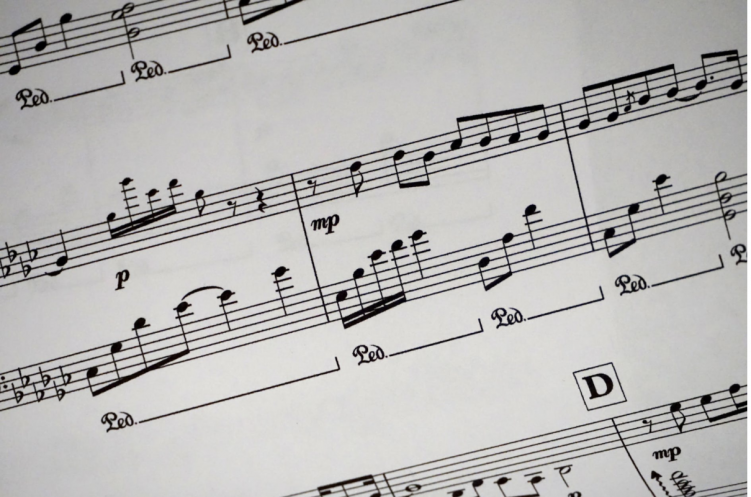Music is one of the most wonderful and interesting forms of art and artistic expression. Unlike most art, which is visual in its nature and, thus, is perceived spatially, music can usually be appreciated temporally. That means that a piece of musical art can only be perceived and appreciated only after at least being listened to once in its entirety. This peculiarity in particular often attracts young talents, many of which start taking their art seriously and pursue music education. Yet, some things become challenging here.
Not (Exactly) for Everyone
A degree in music is quite a useful thing to acquire. Essentially, after graduating from a higher music school, you become a real music professional, which allows you to play in orchestras, big bands, and many other projects that make money right from the start. On top of that, you’ll have a reputation good enough to produce records or work in the recording industry. The bottom line is, you get all the necessary life experience to handle your path as a musician and everything that follows. Yet, there are some difficulties regarding music education as well.
Music education may seem like a beautiful daydream. You’ll be required to practice your instrument most of the time, attend music theory classes, and constantly develop your talent. There are almost no writing tasks in music education, and those that are assigned can be easily handled by a great college paper service in no time. Yet, there are some rather problematic sides to music education as well.
One particular thing about it is that it’s pretty linear. While you can enter a university right after high school to study law, mathematics, engineering, computer science, or almost anything else, entering a higher music school is a bit different. In order to start higher music education, you have to first complete elementary music education as you must be good at music theory. So, if you never visited a music school or have taken music lessons, entering a higher music school will be very challenging, without even mentioning graduating and earning your bachelor’s degree.
Ways of Earning Bachelor’s Degree in Music
Still, there are a couple of workarounds to get a degree related to music without going to school for at least 5 years. There are lots of different occupations that are directly related to music, however, do not require formal musical education. At the same time, there are some shortcuts that can help you to get through the exams.
Okay, so, you feel like you’re great with your musical instrument and just want to get professional relatively fast. You can use the shortcut to music school and learn the basic music theory required to enter a music college or university. And that shortcut is online education. There are lots of rather comprehensive music courses out there that can help you understand how music works, why it works that way, and how you can apply that to your instrument.
- Getting a degree in music engineering or production.
You might have not attended music school as a kid, but you’re great with technology and electronics? Maybe, you can get into music through the tech side. Sound and music engineering do not require extensive knowledge of music theory from you. Yet, it deals with music directly and gets you in this world with less effort. Music production, on the other hand, requires you to have some managerial skills and a great taste in music.
- Getting a degree in music education.
Another shortcut into a professional music world. Yeah, the career of a music teacher will not get you to Lollapalooza (though everything’s possible) but you’ll be able to make money by doing what you love. The extensive knowledge of music theory is not required from the music educator, you have to know the basics (taking online courses is highly recommended) and be able to explain it all to younger generations.
- Getting a degree in fine arts.
Finally, if you feel like you’ll be fine without music’s practical side, you can always study fine arts and become a music critic or reviewer. Fine arts cover lots of art forms, including music, dance, theater, etc. You’ll have to write quite a lot of essays here, but you can always check LetsGradeIt if you ever need some help. After all, if you decide to study fine arts, it means you’re likely talented in writing in the first place.
Getting Closer to a Dream
If a career in music is your life dream and goal, there’s no point to give it up just because you might not have a formal musical education. Music, like any other art form, is extremely multifaceted, and lots of specialists are required in its numerous areas. And trust it when you hear that being professionally involved in music, no matter how is a great experience worth all the time and effort.
If it wasn’t for her enthusiasm, Merissa would probably never get a job as a professional reporter, author, and blogger. Instead of being interested in a particular occupation, she was always interested in traveling around the world and experiencing new things. After all those years, Merissa can proudly say she’s happy with her choice of sharing her life experiences with you like her job.


Music is one of the most wonderful and interesting forms of art and artistic expression. Unlike most art, which is visual in its nature and, thus, is perceived spatially, music can usually be appreciated temporally. That means that a piece of musical art can only be perceived and appreciated only after at least being listened to once in its entirety. This peculiarity in particular often attracts young talents, many of which start taking their art seriously and pursue music education. Yet, some things become challenging here.
Not (Exactly) for Everyone
A degree in music is quite a useful thing to acquire. Essentially, after graduating from a higher music school, you become a real music professional, which allows you to play in orchestras, big bands, and many other projects that make money right from the start. On top of that, you’ll have a reputation good enough to produce records or work in the recording industry. The bottom line is, you get all the necessary life experience to handle your path as a musician and everything that follows. Yet, there are some difficulties regarding music education as well.
Music education may seem like a beautiful daydream. You’ll be required to practice your instrument most of the time, attend music theory classes, and constantly develop your talent. There are almost no writing tasks in music education, and those that are assigned can be easily handled by a great college paper service in no time. Yet, there are some rather problematic sides to music education as well.
One particular thing about it is that it’s pretty linear. While you can enter a university right after high school to study law, mathematics, engineering, computer science, or almost anything else, entering a higher music school is a bit different. In order to start higher music education, you have to first complete elementary music education as you must be good at music theory. So, if you never visited a music school or have taken music lessons, entering a higher music school will be very challenging, without even mentioning graduating and earning your bachelor’s degree.
Ways of Earning Bachelor’s Degree in Music
Still, there are a couple of workarounds to get a degree related to music without going to school for at least 5 years. There are lots of different occupations that are directly related to music, however, do not require formal musical education. At the same time, there are some shortcuts that can help you to get through the exams.
Okay, so, you feel like you’re great with your musical instrument and just want to get professional relatively fast. You can use the shortcut to music school and learn the basic music theory required to enter a music college or university. And that shortcut is online education. There are lots of rather comprehensive music courses out there that can help you understand how music works, why it works that way, and how you can apply that to your instrument.
You might have not attended music school as a kid, but you’re great with technology and electronics? Maybe, you can get into music through the tech side. Sound and music engineering do not require extensive knowledge of music theory from you. Yet, it deals with music directly and gets you in this world with less effort. Music production, on the other hand, requires you to have some managerial skills and a great taste in music.
Another shortcut into a professional music world. Yeah, the career of a music teacher will not get you to Lollapalooza (though everything’s possible) but you’ll be able to make money by doing what you love. The extensive knowledge of music theory is not required from the music educator, you have to know the basics (taking online courses is highly recommended) and be able to explain it all to younger generations.
Finally, if you feel like you’ll be fine without music’s practical side, you can always study fine arts and become a music critic or reviewer. Fine arts cover lots of art forms, including music, dance, theater, etc. You’ll have to write quite a lot of essays here, but you can always check LetsGradeIt if you ever need some help. After all, if you decide to study fine arts, it means you’re likely talented in writing in the first place.
Getting Closer to a Dream
If a career in music is your life dream and goal, there’s no point to give it up just because you might not have a formal musical education. Music, like any other art form, is extremely multifaceted, and lots of specialists are required in its numerous areas. And trust it when you hear that being professionally involved in music, no matter how is a great experience worth all the time and effort.
If it wasn’t for her enthusiasm, Merissa would probably never get a job as a professional reporter, author, and blogger. Instead of being interested in a particular occupation, she was always interested in traveling around the world and experiencing new things. After all those years, Merissa can proudly say she’s happy with her choice of sharing her life experiences with you like her job.
Related Content: